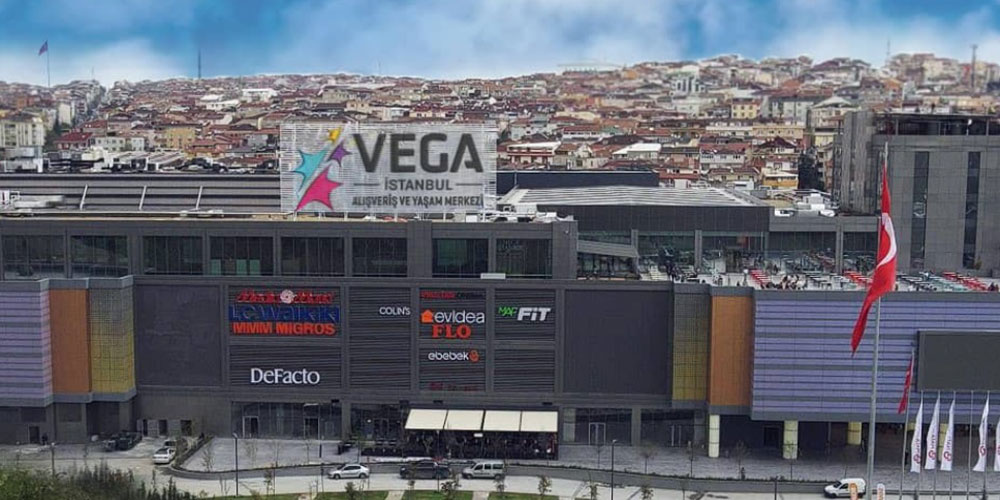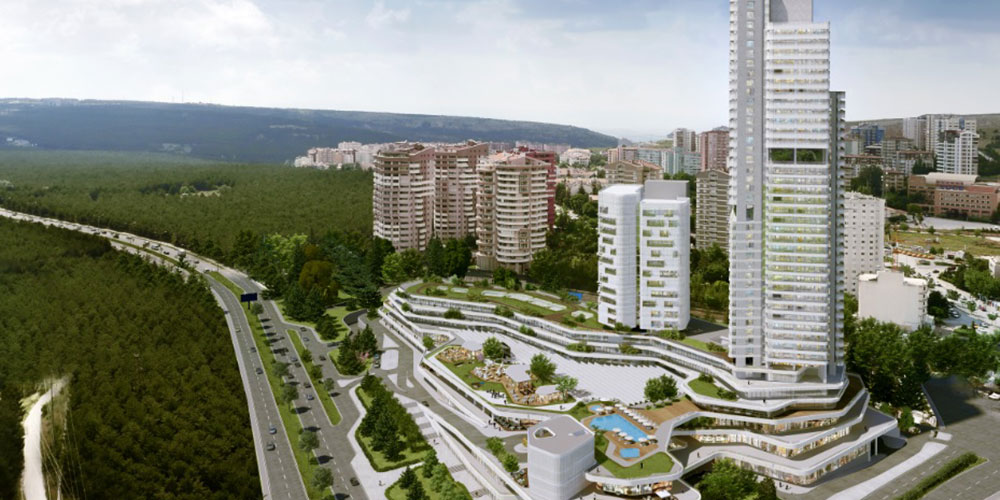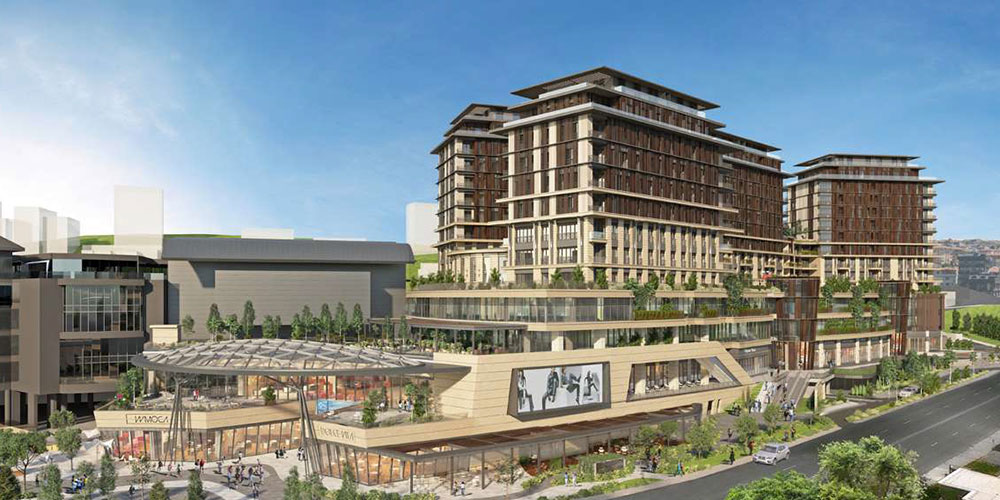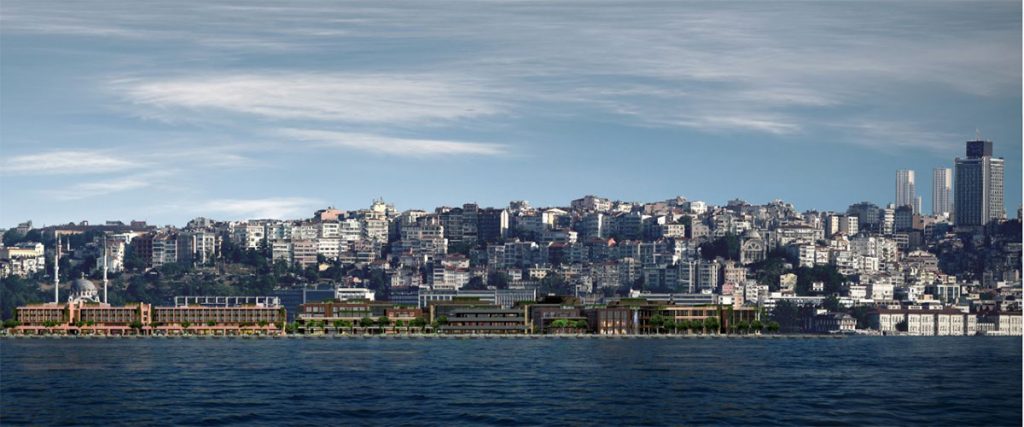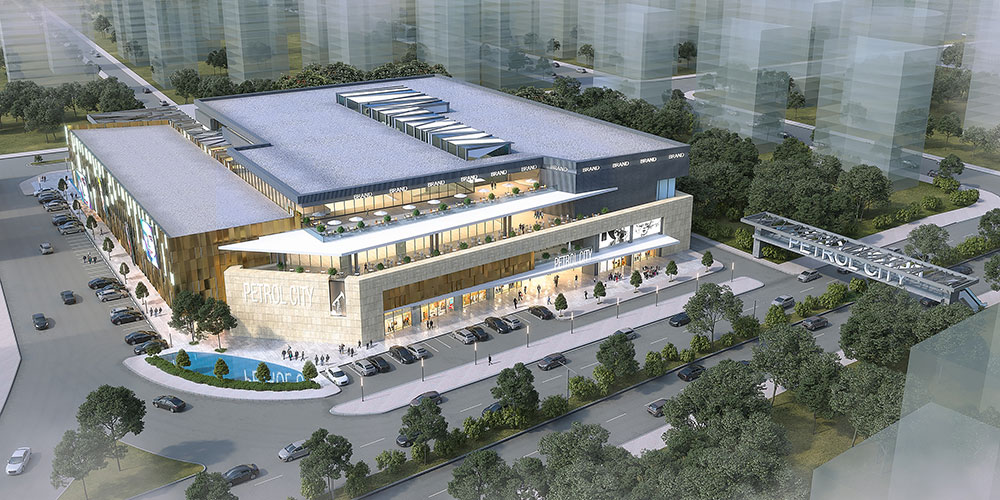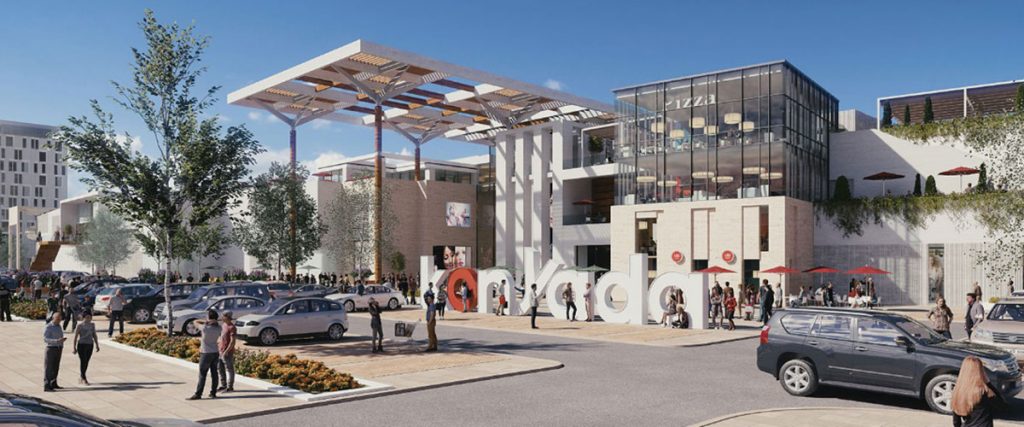By Ortaç Özortaç
In order to make a sound forecast for the future, let us begin by taking a look at some snapshots, both before and during the pandemic. Despite the regulation published in October 2018 to protect the Turkish lira, designating it as a mandatory currency in rental contracts, the change in the political climate, and the volatility of exchange rates, from the perspective of shopping center investors, there was still a demand on the part of new international players to enter the Turkish retail real estate market. Interest from companies, mainly from the Gulf region and Asian countries, remained high.
The retail market flourished as a result of the positive influence of the stabilized exchange rate. In 2019, annual sales averaged around €1,200/sq m. That was followed by a 17.5% positive growth in sales volume for the first quarter of 2020, according to statistics published by the Turkish Statistical Institute, which was simultaneously supported by an increase in footfall at shopping centers.
Meanwhile, national retailers were motivated by the encouraging positive economic numbers to move into international markets in order to minimize their currency risk and diversify their markets as a means of generating income.
Some of the primary examples of the aforementioned expansions are as follows: LCW and Flo expanded their business in the North African region; Kigili entered the German market; Altinyildiz became a competitive player in the Romanian market; major women’s fashion brands Roman and Tuzun entered the Middle East; and English Home penetrated the Balkan countries.
March 2020 Marked the Turning Point
Retailers developed “experience shopping” concepts, gastronomy operators’ sales flourished, and, entertainment and sports club operators were focused on new concepts. Turkey continued to be the focus of international retailers. In mid-March, following the outbreak of Covid-19, all of those developments, unfortunately, not only slowed down, but were even brought to a complete halt for an unspecified period of time.
The impact of the lockdowns and shopping center closures, which were imposed as part of the pandemic-mitigating measures, caused a dramatic, unexpected drop in the earnings of shopping center investors. They immediately began negotiating with their financial institutions in an effort to restructure their loans, and they sought any additional support that they could.
At the same time, in order to ease the impact of the pandemic, they had to focus on retailer requirements. Government assistance, such as the deferral of tax payments and other debts, also helped to provide relief to the market. Shopping centers that were already in operation searched for ways out of the dire situation, while newly opened centers were forced to immediately adapt to the circumstances by offering retailers rent-free periods and other means of assistance to help them survive the crisis.
Major Openings During the Pandemic
Vega Istanbul in Istanbul: a mixed-use (residential and hospital) regional center developed by Nata Holding and leased by JLL Turkey, which covers 55,000 sq m of GLA, has 150 stores, and opened in the third quarter of 2020 with an occupancy rate of more than 80%. Adjacent to TEM Highway, Vega Istanbul features main anchors LC Waikiki, Ozdilek Department Store, Media Markt, Macfit, Migros.
Kuzu Effect in Ankara: a mixed-use (residential & offices) district center developed by Kuzu Group and leased by JLL Turkey, which covers 28,000 sq m of GLA, has 120 stores, and opened in Q1 2020 with an occupancy rate of 85%. In addition to sophisticated gastronomy brands, Vakko luxury department serves as the anchor.
Nevcarsi in Istanbul: a mixed-use (residential & offices) district center developed by Kalyon Holding, which covers 30,000 sq m of GLA, has 130 stores, and opened in the third quarter of 2020 with an occupancy rate of 70%. The scheme is primarily focused on the provision of daily needs and gastronomy.
Postponed Openings
Some of the shopping centers that were under construction in different regions of Turkey decided to postpone their openings.
Galataport in Istanbul: a mixed-use open-air project (Peninsula Istanbul, fashion boutiques, cafes and restaurants, art galleries, museums, offices, and a cruise port) near the beautiful Bosphorus boasts a 1.2-kilometer coastline, was developed by Galataport Istanbul, a joint venture between Dogus Group & Bilgili Holding, and leased by Galataport Istanbul and JLL Turkey. It covers 52,000 sq m of retail space, has 250 stores, and is scheduled to open in 2021. The gastronomy sector serves as the anchor industry. Multinational fashion retailers have also leased spaces.
Petrolcity in Batman: a shopping center project is located in one of the most populous cities in eastern Turkey – Batman. It is scheduled to open in the third quarter of 2021. JLL Turkey is responsible for concept development and leasing management. Petrolcity covers 35,000 sq m of GLA and has approximately 130 stores.
Konya’da in Konya: a mixed-use shopping center project combined with offices in the city of Konya, which is located around 200 kilometers from Ankara. JLL Turkey is responsible for concept development and leasing management. Konya’da covers 55,000 sq m of GLA and has approximately 180 stores. The project has been delayed until 2022.
Trickier Than Ever to Make Projections
During the pandemic, the capabilities of professional consultancy firms were relentlessly tested. Firms that could demonstrate an agile mindset, creative solutions, and a strong technological infrastructure stood out from the competition. They secured their positions in the eyes of relevant shopping center investors as their expertise became more valuable than ever. To some extent, we can say that the pandemic had a positive impact on the development of the retail real estate consultancy market.
Retailers whose stores had been closed for three months could hardly imagine what would happen next. They focused primarily on portfolio optimization, the closure of inefficient stores, and the improvement of contractual financial ratios. In the aftermath, they came to fully realize the heavy financial burden of residual inventory created by stores that had been closed for months. As a result, retailers prioritized online marketplaces as a way to monetize the excess inventory on their shelves.
Era of Digital Transformation
Even though it was a year marked by crisis, which caused a remarkable contraction of the market, a new era was ushered in; the era of digital transformation. According to the statistics published by the Turkish Statistical Institute, e-commerce recorded a remarkable growth of 166%, which affected both the volume of rental activities and the increasing demand for services, such as “inner-city logistics” and “urban warehouses”.
Due to the mandatory shift of their sales volume to e-commerce channels, retailers were forced to re-evaluate their integration strategies with omnichannel sales operations. They were simultaneously forced to finalize their long-term digitalization plans within a very short period of time as part of their survival plan. While digital transformation was mandatory, logistics costs were the main item that needed to be closely monitored to ensure profitability and sustainability.
In light of recent developments regarding working models and sales channels, there is recognition of the fact that the profitability of online channels has become crucial and, therefore, a hybrid working model – the integration of offline and online channels – is essential for a healthy operation in the coming era. For example, “Karaca”, a major player in the home and decoration sector, has found that logistics costs have doubled during the pandemic. “Karaca”, as well as other brands that have made the digital transformation, have begun to invest in logistics infrastructure and the intra-city warehouse networks in order to be able to process returns and provide same-day delivery in the near future. One might say that this is one of the reasons behind the increase in investments in logistics and warehouse buildings.
Other important markets, such as groceries, young & active wear, home decoration, and consumer electronics, also managed to keep their market volumes intact in the Turkish retail sector. As of now, retailers do not expect a “U”- or “V”-shaped recovery from the crisis. The general expectation is for a “K”-type dilemma, which will lead to either a profit or a loss situation.
What Lies Ahead?
Crises generate waves of invention. As Plato famously wrote, “Our need will be the real creator.” The concept of “working from home” has emerged and become our new reality, leading to vacancies in offices. As a result, a natural setback in the motivation of investors has occurred.
As previously mentioned, interest in investing in logistics centers and warehouses is clearly on the rise. On the other hand, due to the increasing demand for (loan-backed) housing, domestic developers are motivated to find available land for housing investments.
According to statistical data on the financial crisis of 2008, tourist travel recovered two times faster than business travel. Since Turkey is a tourism-driven country, there is an expectation that the Turkish hotel and hospitality industry will recover faster than most. Hotel buildings are also the focus of international investors.
Era of Brands
From a broader perspective, we see the Turkish market as one of the few markets around the globe that can still offer a resilient and crisis-tolerant retail market, dynamic tourism and leisure appeal, and an optimistic younger population with retail consumption capability for international brands looking for investment opportunities.
In addition, high streets and shopping centers have never been more tenant-friendly. This reality can be seen as an opportunity for new entrants to the market. However, the window of opportunity is closing as the impact of the pandemic has weakened. We strongly believe in the success of international retailers, especially department stores, fashion brands, home/decoration concepts, consumer electronics stores, health food stores, and those that can offer experiential shopping with a differentiated perception of the future.
It appears as though Turkish brands, in particular, have caught the latest wave. A good example can be found in Yargıcı, which operates in the women’s fashion sector and opened a 1,000-square-meter store in Maslak in Istanbul, expanding its concept to include a coffee shop, home accessories, and furniture. Another example is Paşabahçe, which opened a brand-new 1,200 sq m experience store on Bağdat Street in Istanbul. The store is comprised of a gastronomy area and a flower store, and it welcomes guests who wish to participate in courses on how to design glass products. In addition, Superstep, an attractive sneaker store, has opened its first “House of Superstep” concept in Istanbul’s Istinye Park. Along with its focus on multi-brand sportswear, the store features a customization studio, a tattoo kiosk, a basketball court, and all-day DJ performances.








